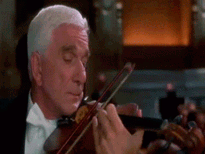And I must be on to something here, because many schools require you to play one Bach piece for your audition. Surely that's not just a coincidence.
Teresa? Lance? Islers?
-G

I didn't mention this, but I do the same thing in the very beginning. I find it helps immensely to learn the parts, because the instant cue to use a particular finger gets the hand in the habit of playing the passage this way each time. By contrast, I rarely feel the need to write in many fingerings for other composers. Also, one other trick--be sure to have an "escape" route if you inadvertently use a wrong finger and come up short on a run! (Or am I the only one who does this?Beckmesser wrote:I probably spend several hours working out the fingering for each fugue and then carefully write it out for nearly every note
And what am I, chopped liver?IcedNote wrote: Teresa? Lance? Islers?
-G

jbuck919 wrote:And what am I, chopped liver?IcedNote wrote: Teresa? Lance? Islers?
-G
It would be helpful to know why you are singling out Bach since none ofl the great keyboard composers is easy, at least in their mature works. What if anything do you play that you find it "easy" in comparison to Bach?
Sorry, John! I had no idea you were a pianist!jbuck919 wrote:And what am I, chopped liver?
It would be helpful to know why you are singling out Bach since none ofl the great keyboard composers is easy, at least in their mature works. What if anything do you play that you find it "easy" in comparison to Bach?
Better than that he's an Organist...IcedNote wrote:Sorry, John! I had no idea you were a pianist!
My high school piano teacher dear old Mrs. Troidle used to say that; I didn't realize it was not original with her.Jack Kelso wrote:Who was the famous pianist who said, "If you can play Bach and Schumann you can play anything!"
Gilels...?! Richter...!? Bülow...?! Someone else......?
Jack
That is not to the point when it comes to execution. The fingering and technique would be the same. One almost never pedals with Bach--both instruments are damped by lifting the fingers from the key. In addition, expressive dynamic change (crescendo and decrescendo) are inappropriate in playing Bach on the piano even though the instrument is capable of them. The only adjustment would be related to a difference in key length. and that is arbitrary as it is perfectly possible to construct a harpsichord with piano-size keys and deviations from this tend to be related to the maker's desire or lack thereof to be intentionally archaic (tuning presents the same problem).dulcinea wrote:As I have said often enough, the piano--a percussion instrument--is simply not right for music that was written for the harpsichord, which is basically an string instrument; why do you think Bach and Scarlatti sound so well on the guitar?
Harpsichord... or Clavichord? Could be either, or both. But a Harpsichord is an instrument where the strings are plucked, and a clavichord is an instrument, that Bach definitely would have used and was familiar with, where the strings are struck (or hammered). In other words, another 'percussion' instrument, like the piano.dulcinea wrote:As I have said often enough, the piano--a percussion instrument--is simply not right for music that was written for the harpsichord, which is basically an string instrument; why do you think Bach and Scarlatti sound so well on the guitar?
Users browsing this forum: No registered users and 6 guests